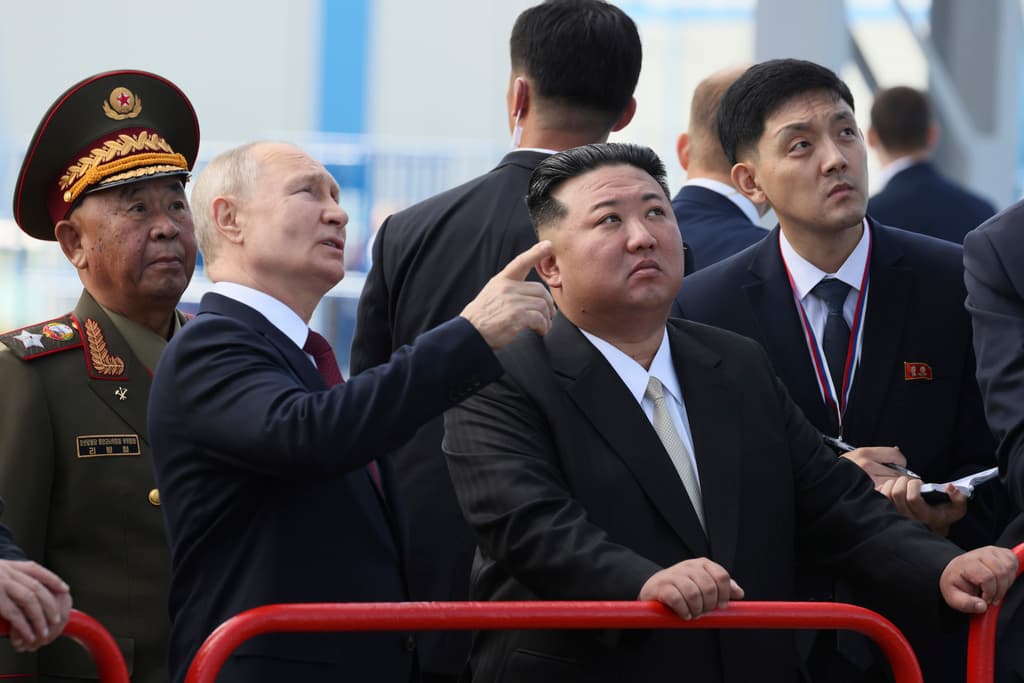North Korean Reds Racing Ammo to Russia in Return for Food for Starving Koreans, Worrying Washington — and Beijing
Russia is eclipsing Communist China as Pyongyang’s main source of agricultural products.

While North Korea rescues Russia from its Ukrainian quagmire with millions of artillery shells and other munitions, Russia is rescuing the North with massive shipments of food for the North’s hungry people. The closer ties between Moscow and Pyongyang are causing consternation not only at Washington, but Beijing, too.
Please check your email.
A verification code has been sent to
Didn't get a code? Click to resend.
To continue reading, please select:
Enter your email to read for FREE
Get 1 FREE article
Join the Sun for a PENNY A DAY
$0.01/day for 60 days
Cancel anytime
100% ad free experience
Unlimited article and commenting access
Full annual dues ($120) billed after 60 days

